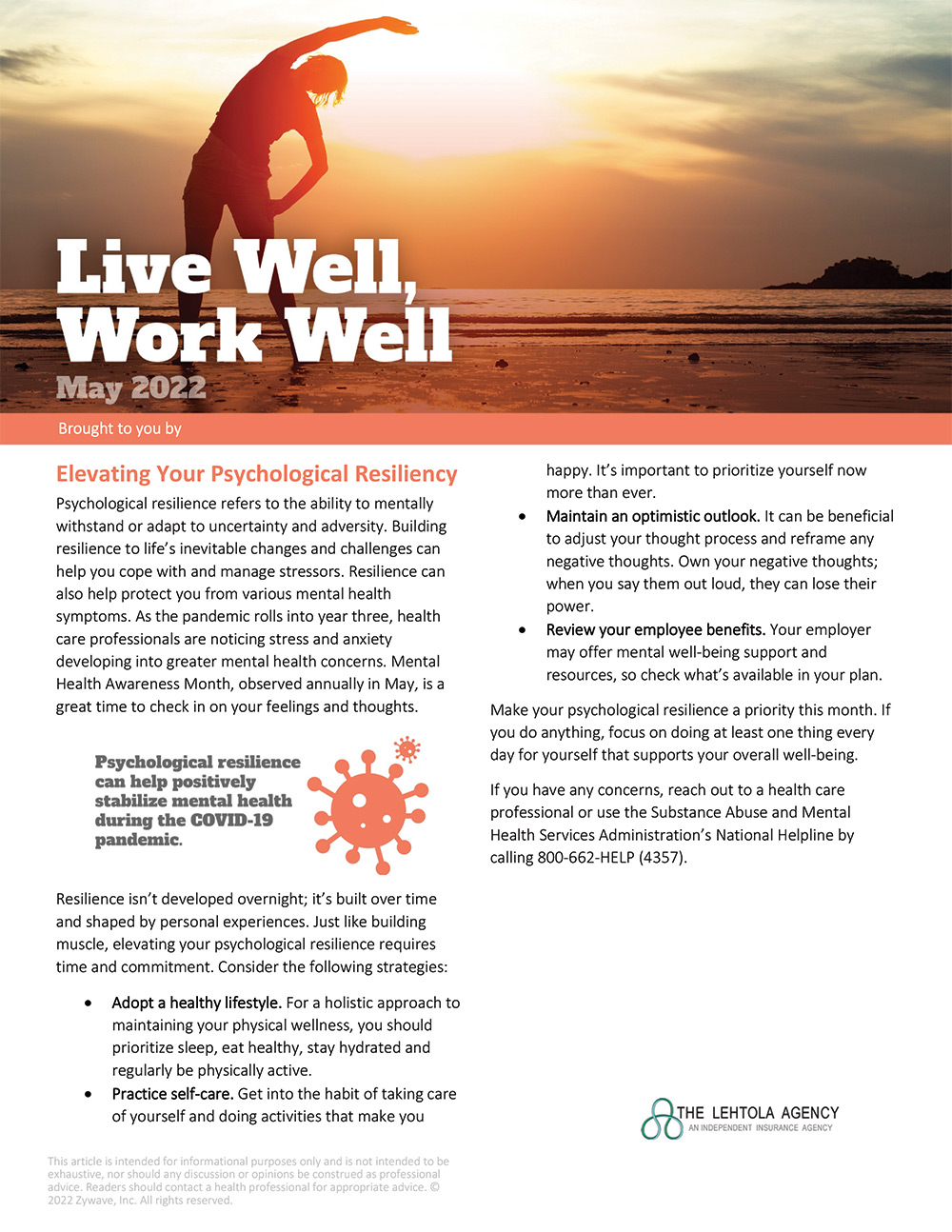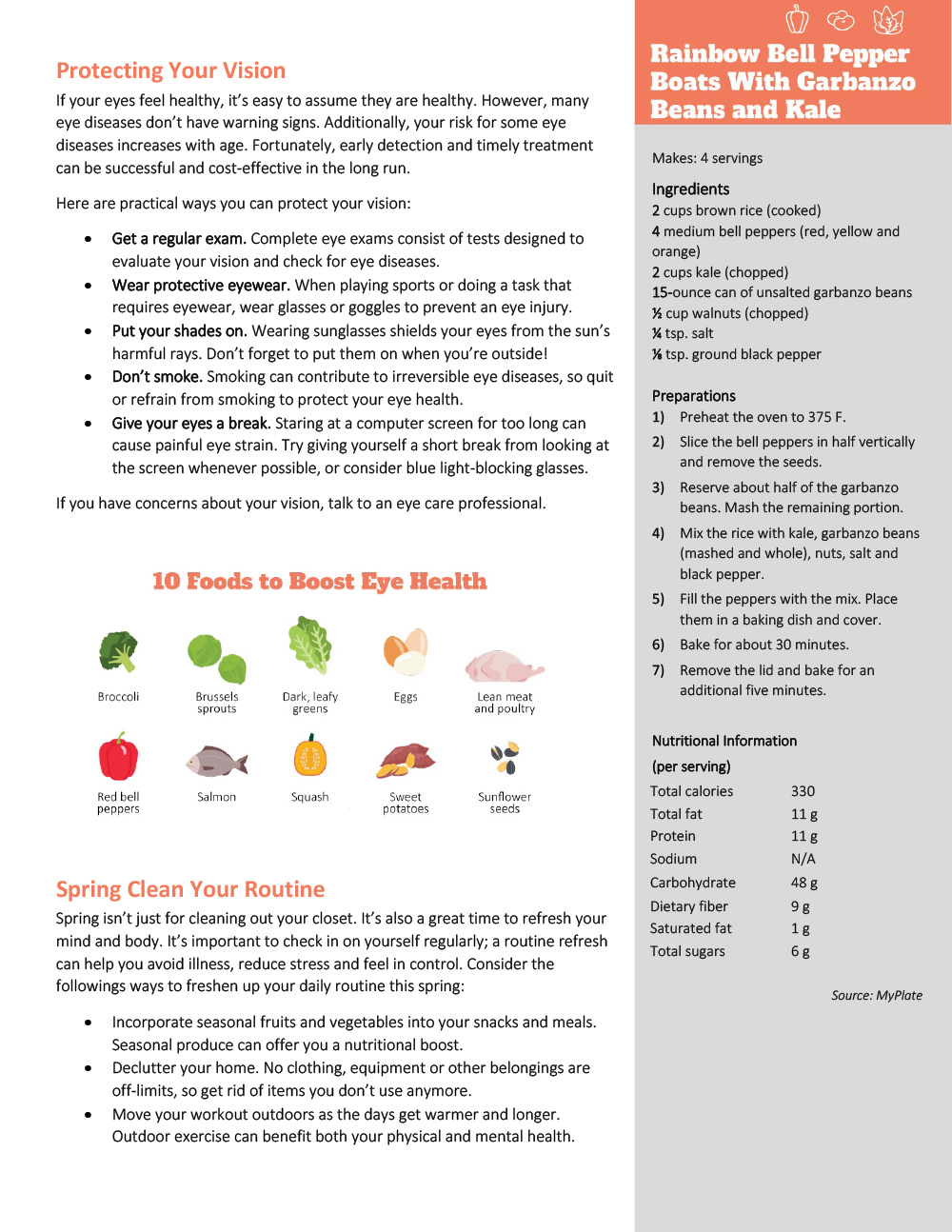Elevating Your Psychological Resiliency
Psychological resilience refers to the ability to mentally withstand or adapt to uncertainty and adversity. Building resilience to life’s inevitable changes and challenges can help you cope with and manage stressors. Resilience can also help protect you from various mental health symptoms. As the pandemic rolls into year three, health care professionals are noticing stress and anxiety developing into greater mental health concerns. Mental Health Awareness Month, observed annually in May, is a great time to check in on your feelings and thoughts.
Psychological resilience can help positively stabilize mental health during the COVID-19 pandemic.
Resilience isn’t developed overnight; it’s built over time and shaped by personal experiences. Just like building muscle, elevating your psychological resilience requires time and commitment. Consider the following strategies:
Adopt a healthy lifestyle. For a holistic approach to maintaining your physical wellness, you should prioritize sleep, eat healthy, stay hydrated and regularly be physically active.
Practice self-care. Get into the habit of taking care of yourself and doing activities that make you happy. It’s important to prioritize yourself now more than ever.
Maintain an optimistic outlook. It can be beneficial to adjust your thought process and reframe any negative thoughts. Own your negative thoughts; when you say them out loud, they can lose their power.
Review your employee benefits. Your employer may offer mental well-being support and resources, so check what’s available in your plan.
Make your psychological resilience a priority this month. If you do anything, focus on doing at least one thing every day for yourself that supports your overall well-being.
If you have any concerns, reach out to a health care professional or use the Substance Abuse and Mental Health Services Administration’s National Helpline by calling 800-662-HELP (4357).
Protecting Your Vision
If your eyes feel healthy, it’s easy to assume they are healthy. However, many eye diseases don’t have warning signs. Additionally, your risk for some eye diseases increases with age. Fortunately, early detection and timely treatment can be successful and cost-effective in the long run.
Here are practical ways you can protect your vision:
Get a regular exam. Complete eye exams consist of tests designed to evaluate your vision and check for eye diseases.
Wear protective eyewear. When playing sports or doing a task that requires eyewear, wear glasses or goggles to prevent an eye injury.
Put your shades on. Wearing sunglasses shields your eyes from the sun’s harmful rays. Don’t forget to put them on when you’re outside!
Don’t smoke. Smoking can contribute to irreversible eye diseases, so quit or refrain from smoking to protect your eye health.
Give your eyes a break. Staring at a computer screen for too long can cause painful eye strain. Try giving yourself a short break from looking at the screen whenever possible, or consider blue light-blocking glasses.
If you have concerns about your vision, talk to an eye care professional.
10 Foods to Boost Eye Health
• Broccoli
• Brussels sprouts
• Dark, leafy greens
• Eggs
• Lean meat and poultry
• Red bell peppers
• Salmon
• Squash
• Sweet potatoes
• Sunflower seeds


